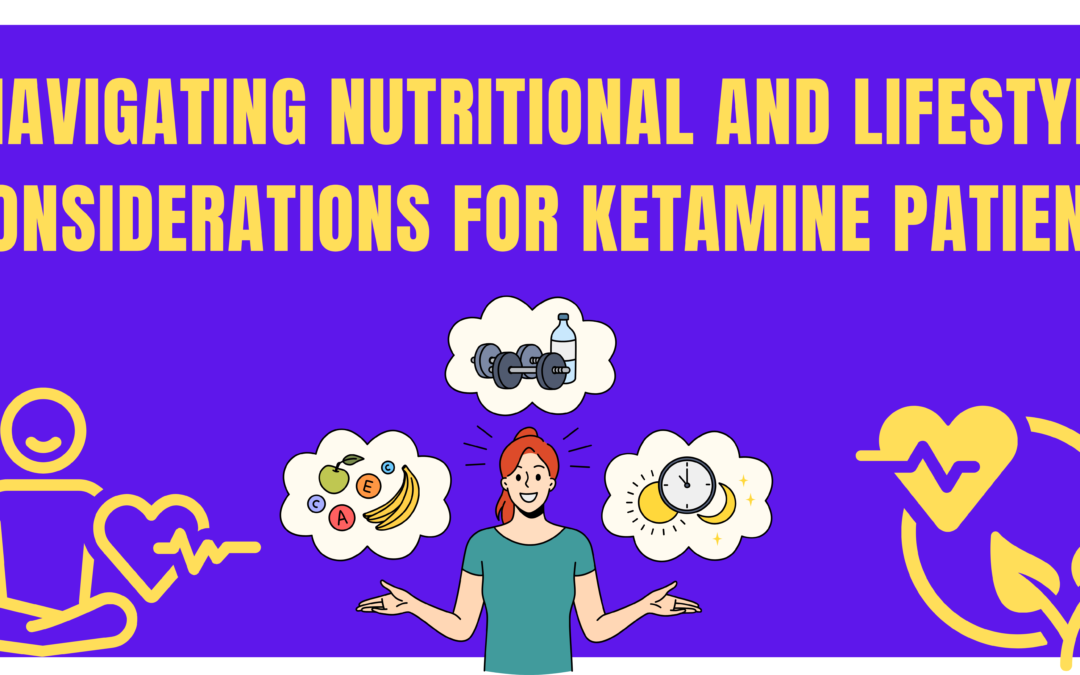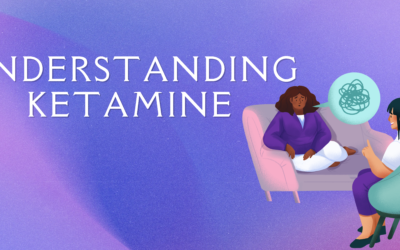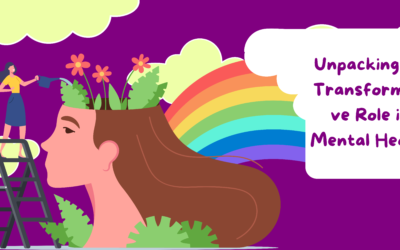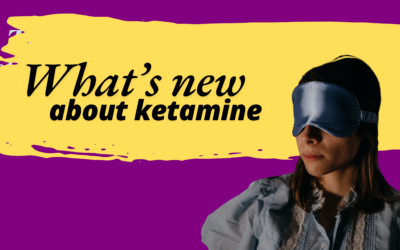Navigating Nutritional and Lifestyle Considerations for Ketamine Patients
Ketamine therapy can be a transformative experience for those struggling with mental health challenges. However, incorporating nutritional and lifestyle considerations into your treatment plan can further enhance its benefits. By focusing on balanced nutrition, regular exercise, stress management, and supportive social connections, patients can create a holistic framework for healing that promotes not only recovery but sustained mental wellness.In recent years, ketamine has emerged as a groundbreaking treatment for various mental health conditions, including depression anxiety, and PTSD. While many patients experience significant improvements in their symptoms following ketamine therapy, the journey to mental wellness often extends beyond the treatment itself. A holistic approach that incorporates proper nutrition and lifestyle changes can enhance the benefits of ketamine therapy, promoting overall well-being and long-lasting results.
Understanding Ketamine Treatment
Ketamine is an anesthetic that, at lower doses, has demonstrated rapid antidepressant effects. It works primarily by modulating glutamate levels in the brain, fostering synaptic plasticity, and enhancing connections between neurons. Treatments can be administered through infusions or nasal sprays, and most patients undergo a series of sessions to achieve optimal results.
However, while ketamine therapy can provide immediate relief from depressive symptoms, integrating supportive lifestyle changes and nutritional strategies can significantly enhance these effects and improve overall mental health outcomes.
The Importance of Nutrition in Recovery
Nutrition plays a crucial role in brain function and mood regulation. A balanced diet not only supports physical health but also aids in emotional resilience. Here are some key nutritional considerations that can support individuals undergoing ketamine treatment:
Key Nutritional Considerations:
1. Balanced Diet – Eating a variety of foods is essential for obtaining the necessary nutrients for mental and physical health. A diet rich in fruits, vegetables, whole grains, lean proteins, and healthy fats can stabilize mood, enhance energy levels, and support cognitive function. Aim for colorful plates, as different colors often represent different nutrients.
2. Hydration – Staying hydrated is vital, especially during ketamine treatment sessions. Dehydration can exacerbate fatigue and mood swings, undermining the benefits of therapy. A good rule of thumb is to aim for at least eight 8-ounce glasses of water daily, adjusting based on activity levels and climate.
3. Avoiding Processed Foods – Processed foods, which often contain high levels of sugar, refined carbohydrates, and unhealthy fats, can negatively affect mood and cognitive function. Instead, focus on whole foods that nourish your body and mind. Choose snacks like fruits, nuts, and yogurt rather than sugary treats or packaged snacks.
4. Incorporating Omega-3 Fatty Acids – Omega-3 fatty acids are known for their anti-inflammatory properties and their positive effects on brain health and mood stabilization. Include sources such as fatty fish (like salmon and mackerel), walnuts, chia seeds, and flaxseeds in your diet to reap the benefits.
5. Sufficient Vitamin D and B Vitamins – Deficiencies in Vitamin D and B vitamins (such as B12 and folate) have been associated with depression and anxiety. Incorporate foods rich in these vitamins, such as fortified cereals, leafy greens, eggs, and dairy products. If necessary, consult your healthcare provider about supplementation.
Lifestyle Modifications to Enhance Treatment
In addition to nutrition, lifestyle factors play a significant role in promoting mental health and optimizing the effects of ketamine therapy. Here are some essential lifestyle modifications to consider:
Key Lifestyle Considerations:
1. Regular Physical Activity – Exercise is a powerful tool for combating depression and anxiety. It releases endorphins, which can improve mood and increase feelings of happiness. Whether it’s brisk walking, cycling, yoga, or dancing, find an activity you enjoy and engage in it regularly.
2. Mindfulness and Stress Management – Practices such as mindfulness meditation, deep breathing exercises, or yoga can help manage stress and promote emotional balance. These techniques can also enhance the effectiveness of ketamine therapy by fostering a sense of calm and clarity.
3. Establishing a Sleep Routine – Quality sleep is crucial for mental health. Aim for 7-9 hours of restorative sleep each night. Develop a relaxing bedtime routine, maintain a consistent sleep schedule, and create a comfortable sleep environment to promote better sleep quality.
4. Social Connections – Building and maintaining strong social connections can provide emotional support and reduce feelings of isolation. Engage with friends, family, or support groups, and do not hesitate to reach out for help when needed.
5. Limit Alcohol and Stimulants – Alcohol and recreational drugs can interfere with treatment progress and may exacerbate anxiety and depression. Limiting or avoiding these substances can create a more supportive environment for healing.
Conclusion
Ketamine therapy can be a transformative experience for those struggling with mental health challenges. However, incorporating nutritional and lifestyle considerations into your treatment plan can further enhance its benefits. By focusing on balanced nutrition, regular exercise, stress management, and supportive social connections, patients can create a holistic framework for healing that promotes not only recovery but sustained mental wellness.
Always consult with a qualified healthcare professional before starting any new treatment and ensure that you receive care from experienced providers who understand the complexities of ketamine therapy. With ongoing research and clinical use, ketamine may well change the landscape of chronic pain management in the years to come.
Understanding Ketamine
Understanding Ketamine: A Revolutionary Treatment for Depression and Beyond In recent years, ketamine has gained significant attention in the medical community, particularly for its promising applications in treating depression, anxiety, and other mental health...
Unpacking Its Transformative Role in Mental Health
Ketamine, originally developed as an anesthetic in the 1960s, has garnered significant attention in recent years for its potential benefits in treating various mental health conditions. This powerful drug, once primarily associated with recreational use and...
Whats new about Ketamine
Once known primarily as an anesthetic and a party drug, ketamine is now gaining significant attention in the medical community for its potential therapeutic applications, particularly in treating mental health conditions. Recent research has focused on its effects on...




